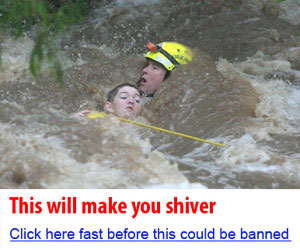From Panic to Power: How to Stay in Control in Crisis
Something’s off. You can feel it, right? The air’s just… different. That eerie kind of silence that lingers before a storm, except this isn’t just about the weather. The rhythm of everyday life, the unspoken trust that things will keep running as they should—it’s starting to fray at the edges. And when you look around, really look, you start seeing it. The tension. The nervous glances. The headlines screaming contradictions. Social media? A mess. And deep down, a question forms, one you don’t want to say out loud: What if this is it?
Civil unrest. Sounds like something that happens somewhere else, to someone else—until it doesn’t. Until suddenly, the normalcy you took for granted feels like a fragile glass, one wrong move away from shattering. And here’s the uncomfortable truth: when that moment comes, there are two types of people—those who panic and those who take control. The ones who freeze, hoping for the best, and the ones who act. The ones who let fear dictate their choices, and the ones who turn fear into fuel.
Panic is the enemy here. Panic makes people stupid. Panic makes you freeze when you should be moving. And that’s why the first, most important thing you need to do? Get your mind right. Forget the Hollywood chaos, the over-the-top doomsday fantasies—this isn’t about stockpiling weapons or learning how to build a fire with two sticks (although, hey, could be useful). This is about clarity. The kind that keeps you grounded while everything else is spiraling.
See, unrest doesn’t just explode out of nowhere. It simmers. There are warning signs, breadcrumbs leading up to the main event—if you know where to look. Rising costs, fraying institutions, protests that don’t go away but keep building, a general sense that people have had enough. And once unrest kicks into full gear? The options shrink fast. That’s why step one is awareness. Stop skimming headlines, stop taking everything at face value. Dig a little. Compare sources. Listen to perspectives you don’t agree with—not to change your mind, but to understand what’s fueling the fire.
Then, of course, the obvious: supplies. People roll their eyes at this, right up until they’re standing in a grocery store staring at empty shelves. No, you don’t need a year’s worth of freeze-dried astronaut food. But if your fridge and pantry can’t hold you over for even a couple weeks? That’s a problem. Water. Basic medical supplies. A plan for power outages. Things you assume will always be there—until they’re not. Having them isn’t paranoia; it’s just common sense.
And security? Not about paranoia either. You don’t have to be armed to the teeth, but you do need a plan. Where do you go if things get bad? Do you even know an alternative route out of your neighborhood if the main roads are blocked? Think about it. Actually, no—don’t just think. Write it down. Because stress does funny things to memory, and in the heat of the moment, clear instructions (even if they’re your own) can be a lifesaver.
Then there’s the thing no one talks about enough—community. Humans weren’t built to go it alone. The lone-wolf survival fantasy? Looks cool in movies, but in real life, isolation is dangerous. Who can you trust? Who can you rely on? Who relies on you? The more connected you are, the safer you are. It’s that simple.
And let’s talk money—because if things spiral, the economy’s not coming out unscathed. We’ve seen it before. Markets crash, inflation spikes, banks suddenly aren’t so friendly about giving you access to your own cash. If you don’t have a financial buffer, even a small one, you’re vulnerable. Diversify. Keep some liquid cash. Don’t assume your credit card will work forever. Financial preparedness isn’t a luxury; it’s survival in another form.
The part most people ignore? The mental game. Stress, uncertainty, the sheer weight of not knowing what happens next—it wears people down. Fast. Ever notice how in crises, some people stay sharp while others unravel? That’s not luck. That’s mindset. Have routines. Have something to hold onto—whether it’s faith, a daily habit, a sense of purpose. The world outside might go crazy, but you? You don’t have to.
And here’s the kicker: the window for preparation doesn’t stay open forever. By the time you realize you need a plan, it might already be too late to make one. The people who move early? Who take even the smallest steps now? They’re the ones who don’t just survive—they adapt. They keep going while everyone else scrambles.
So the real question isn’t “What if?” It’s “What now?” Because waiting for certainty? That’s the biggest gamble of all. And right now, whether you want to admit it or not—you still have time. Just not as much as you think.



